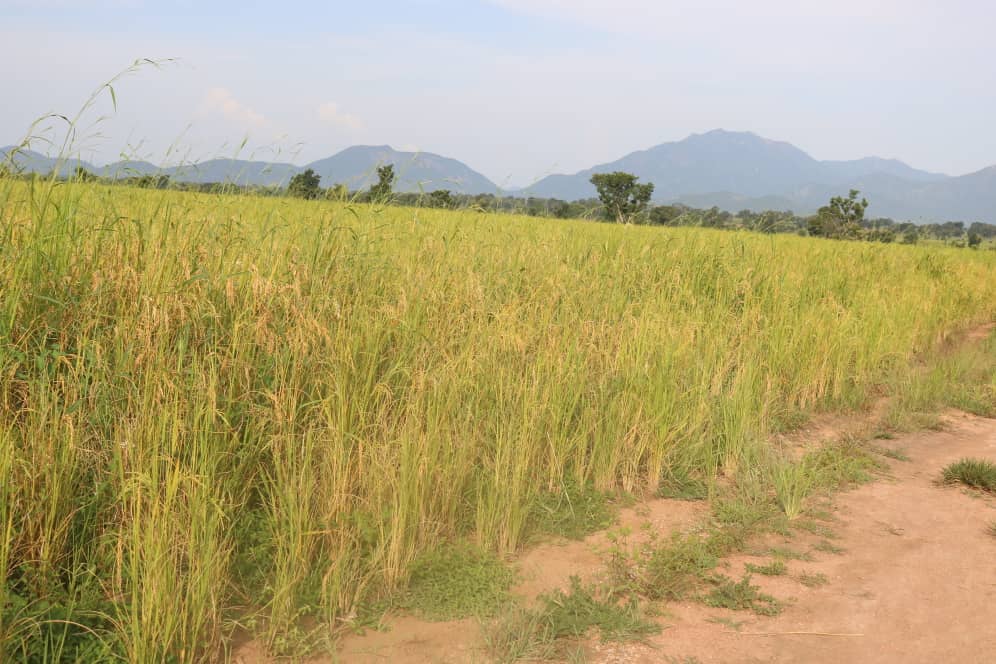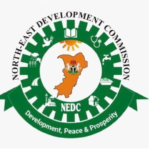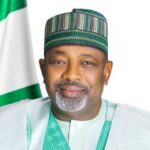The National Agricultural Land Development Agency (NALDA) has commenced rice harvest in one of its farms in Adamawa State.
The agency has also received a piece of land to start wheat farming in the state.
- Buhari: 2nd Niger Bridge, Lagos-Ibadan expressway to be completed before 2023
- Insecurity, separatist agitations undermining Nigeria’s unity — Ex-COAS Ihejirika
The Executive Secretary of the agency, Prince Paul Ikonne, and his team inspected the ongoing harvest activities on its rice farm in Suju village, in the Ganye local government area of the state.
The farm, which is part of NALDA’s wet season farming programme, is expected to yield at least 1000 tons of rice at the end of the harvest.
After the wet season harvest is done, there are already plans on the ground to commence dry season wheat farming.
Five boreholes have been drilled with a generator to power them.
The farm already boasts of a stream which is a natural water source that would be utilized to support irrigation activities on the farm.
The agency has received land donations for wheat farming in Ribadu village in Fufore Local Government Area of the state to boost wheat production in the country and enhance the country’s economic and agricultural growth.
Wheat was strategically selected for its viability in the community and also to encourage more people to go into wheat farming to meet up local demands.
NALDA is expected to sign a Memorandum of Understanding with the community to perfect the modalities of the farm.
The land is expected to engage 1000 youth from the community, on a two-youth-per-hectares sharing ratio in wheat farming.
While receiving the land at the Palace of Abubakar Aliyu Ribadu (Gidado), in Ribadu, Prince Ikonne said President Muhammadu Buhari is interested in empowering the farmers and raising more millionaires through agriculture.
“What we do is to empower the farmers; the president is interested in raising more Millionaires from farming and the agricultural sector and also attracts more people to go into agribusiness.
“When we take possession of this land, we would also allocate it to the indigenes, people from your community that you would nominate.
“Our job is to put them through how to go through dry season farming, provide all the inputs and all the support that they need,” he said.

 Join Daily Trust WhatsApp Community For Quick Access To News and Happenings Around You.
Join Daily Trust WhatsApp Community For Quick Access To News and Happenings Around You.


